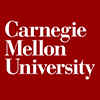Political Science, International Relations, and Emerging Technologies- Multiple Tenure-Track Faculty Lines
 Carnegie Mellon University Carnegie Mellon University | |
 United States, Pennsylvania, Pittsburgh | |
 5000 Forbes Avenue (Show on map) | |
 Feb 20, 2025 Feb 20, 2025 | |
|
Carnegie Mellon University: Dietrich College of Humanities and Social Sciences: Carnegie Mellon Institute for Strategy and Technology Location Pittsburgh, PA Open Date Aug 22, 2024 Deadline Mar 31, 2025 at 11:59 PM Eastern Time Description Carnegie Mellon University (CMU) has launched a major new initiative, the Carnegie Mellon Institute for Strategy and Technology (CMIST), which is devoted to the wise development, use and governance of new and emerging technologies that are changing the national and international security landscape. As part of this forward-looking enterprise, the university seeks top tenure-line scholars in political science, international relations, and other related disciplines with established interest in emerging technologies relevant to international affairs. Scholars investigating intersections between biotechnology, artificial intelligence, and major CBNR risks are of particular interest during this hiring cycle, as are experts in international law and technology regulation. But the best candidates will be doing cutting-edge social science research on emerging technologies that promises to contribute to intellectual efforts in CMIST and across CMU. We will consider scholars at all levels-from entry-level assistant professor to associate and full professor levels. This is an outstanding opportunity to become part of a new, interdisciplinary initiative that combines Carnegie Mellon's existing strengths in AI, cybersecurity, biotechnology, robotics, and other emerging technologies, with scholarship focused on national security, international relations, ethics, law, and policy. We seek intellectually agile, innovative scholars willing to work cooperatively across disciplinary boundaries to tackle the challenges of emergent technologies for war and peace.
Carnegie Mellon University (CMU) launched a major new interdisciplinary institute, the Carnegie Mellon Institute for Strategy and Technology (CMIST), in 2023. CMIST is a university-wide initiative devoted to the wise development, use, and governance of new and emerging technologies that are changing the national and international security landscape. The home for Carnegie Mellon University's (CMU) study of Political Science and International Relations, CMIST is also uniquely poised to take advantage of the university's strengths in computer science and engineering and its distinctive tradition of collaborative, cross-university, cross-disciplinary research. CMU is ranked in the top five in the U.S. in Computer Science and in Engineering. It is ranked #1 in the subfields of artificial intelligence, computer engineering, cybersecurity, information systems, and software engineering. It has leading research institutes in areas such as robotics, machine learning, natural language technologies, human-computer interaction, engineering and public policy, and public policy and management--all designed to reach across disciplinary boundaries to solve key problems and address the highest-priority challenges facing humanity. Tying these areas of strength to crucial questions of strategy, security, ethics, and policy, CMIST is the newest addition to this rich CMU research landscape. Carnegie Mellon University Formally established in 1967, CMU is a dynamic R1 institution that has an exceptional impact on the world. Despite its relative youth, Carnegie Mellon consistently ranks in the top 25 US national universities. CMU is a global, research-intensive university with more than 14,000 students, more than 110,000 living alumni, approximately 5,000 faculty and staff, and over 100 research centers. It is a place of creativity, entrepreneurship, pragmatism, and ambition, with a tradition of strategically focusing its efforts and resources in areas where it can lead, then pursuing those areas with startling intensity. The research and teaching initiative in CMIST is just such a strategic undertaking. Carnegie Mellon University is an equal opportunity employer and is committed to increasing the diversity of its community on a range of intellectual and cultural dimensions. Carnegie Mellon welcomes faculty applicants who will contribute to this diversity through their research, teaching and service, including women, members of minority groups, protected veterans, individuals with disabilities, and others who would contribute in different ways. Carnegie Mellon University seeks to meet the needs of dual-career couples and is a member of the Higher Education Recruitment Consortium (HERC) that assists with dual-career searches. Qualifications Ph.D. Application Instructions Applications should be submitted electronically via the Interfolio application system. They should include the following: For Junior Scholars:
For Mid- and Senior-level Scholars:
Review of applications will begin on October 15, 2024, and will continue until the positions are filled. | |

